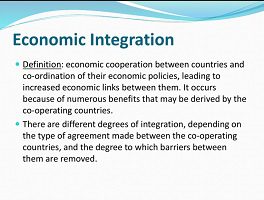How to develop soft skills in the workplace 10 Tested methods
Soft skills
Soft skills refer to the behavioral and emotional skills of employees that, without a doubt, are reflected in the motivation and productivity shown by employees. Here we will describe that How to develop soft skills in the workplace?
Soft skills are the behavioral skills needed to be successful at work. These skills are increasingly in evidence and HR teams are looking at how to leverage them and turn them into success and results in performance reports, both for the institution and for the professionals themselves.
In a recent study , the Forbes Human Resources Council discovered 10 scientifically proven strategies that organizations can implement in their people management to make their employees develop their soft skills.
Companies have already realized that employees need much more than technical skills to become a valuable part of the institution. Unlocking off-curriculum skills and helping team members reach their full potential has become an even stronger trend in recent years .
How to develop soft skills
You will discover the 10 proven methods How to develop soft skills in the workplace that can help develop your employees’ soft skills!
1. Make an immersion
Doing performance management, such as weekly professional coaching sessions and trying to delve as deeply into teams as possible, can help in this development. In addition, mentoring programs can also help and cultivate influencers within the company itself.
According to Courtney Pace, Employee Manager at FedEx ー the world’s largest shipping, document and sundry company ー, centralizing the development of employees’ soft skills in the workplace keeps them trying to improve. them in a more natural and organic way.
2. Create a mentoring culture
Guiding and being available is the second step to start developing the natural skills of the professionals in your organization.
If it is not possible to carry out more formal and individual programs, try to include the conversation and support in your business’s own organizational culture .
Thus, everyone will be creating a mentality of mutual help. Oh, don’t forget to make the environment light and healthy so that people feel comfortable sharing their experiences and expertise with each other.
3. Make soft skills more tangible and measurable
As much as soft skills are the “x factor” that differentiates candidates’ talents, these skills have been devalued for a long time and considered unimportant compared to hard skills , those found in the curriculum.
Thanks to digital transformation , it is now possible to measure these competencies and make them more “real”. After all, everyone likes data and information that reveal significant numbers, especially when they also provide self-knowledge.
Some technologies, such as workplace resilience assessments and managerial judgment, are great investments that can bring even more reality to the People Analytics trend and make soft skills more noticeable.
4. Offer feedback whenever you can
Practicing feedback on employee results is a major differentiator in the development of skills.
Soft skills are like muscles: the more you practice, the more you develop and strengthen.
Therefore, continuous feedback allows a professional to analyze himself and realize what he needs to improve.
5. Serve as an example
When leaders show themselves as lifelong learners and encourage their teams to focus on developing skills, whatever they are, they become much more than just managers.
Putting yourself as someone who also learns makes your collaborators see that you are open to dialogue and that you are also developing every second ー learning and teaching.
Furthermore, participating in programs and sharing your positive experiences with the members of your company motivates and shows that it is possible, yes, to improve and grow.
6. Implement learning
Learning about soft skills and hard skills is definitely very important, but it’s only part of the equation.
Employees need to be able to apply these skills not only within, but also outside the work context.
Try to implement corporate games that actually put into practice the development of these skills and make them feel willing to absorb more and more and in different ways.
7. Align the soft skills that are important to your company
As much as you, internally, know what the employees of your organization need for each position, it is very important to define and align with what, in fact, the organizational culture requires.
Imagine your company is a super cool start-up, with innovative ideas and a completely technological purpose. You will need a professional who has, at least, the same ideals and facilities to absorb what your company needs, right? Therefore, defining these soft skills from the beginning will save you time and money in the event of a wrong hire.
8. Conduct soft skills training
As much as they are natural, socio-emotional skills are totally trainable! You can provide moments of creative communication training, for example, with internal lectures, suggesting greater integration and synergy in your team, and your employees will be able to socialize and show their communicative skills.
9. Gamify what you can
Imagine that your management is a challenge and that employees are players. When you encourage interactive games with common goals within the company, such as results and greater achievements, you get everyone to embark on this journey with you!
Creating corporate games that gamify teams and day-to-day tasks favors imagination and decision-making in team members. In addition, the gamification of the workday is one of the trends for HR in 2020!
10. Measure
Yes, generate indicators and turn numerical data into fundamentals to motivate your team!
You only manage what you measure, so use and abuse the technologies already available on the market and present these results to your employees, providing self-knowledge and understanding of the team for you as well.
Showing each one’s potential and limitations makes the internal vision focus on what really matters: assertive management that retains the greatest amount of talent that can take your company further!
It is possible to perceive that, if the person has well-developed socio-emotional skills, he is able to channel his energy in a way that is able to circumvent the effects of negative circumstances. This avoids disorders at work and even lowers anxiety levels.
Based on these findings, it is evident that socio-emotional skills are a competitive differentiator for companies, acting as a facilitating agent for high-performance professionals and businesses.
We hope that you have understood the topic “How to develop soft skills in the workplace“




